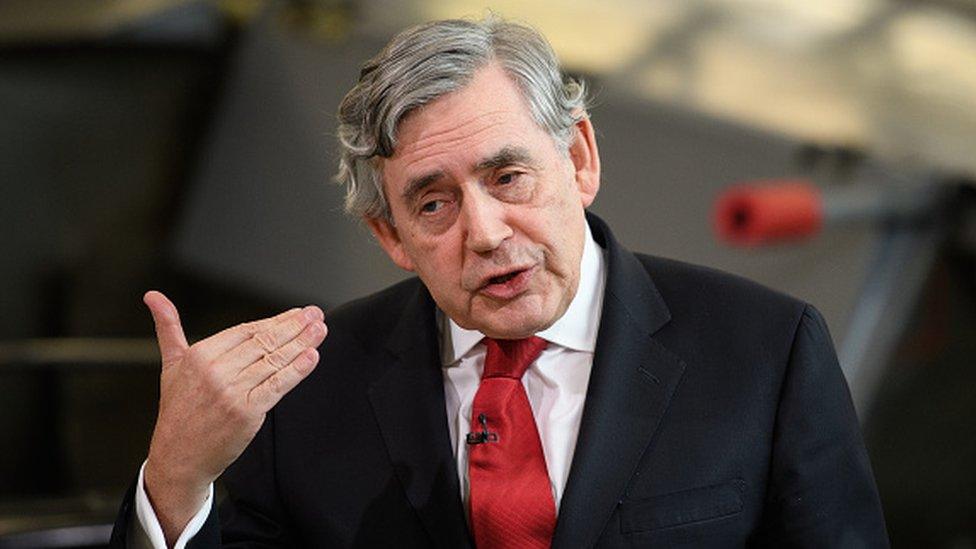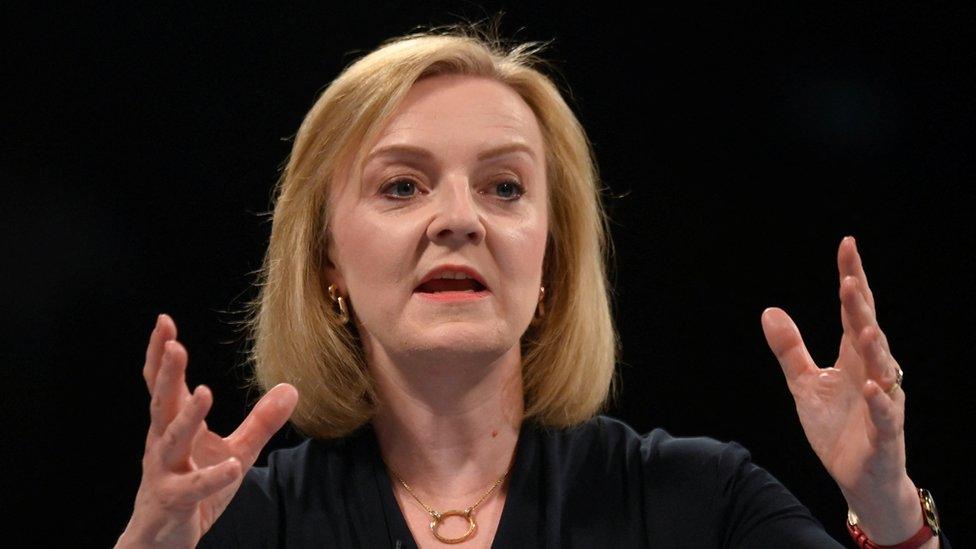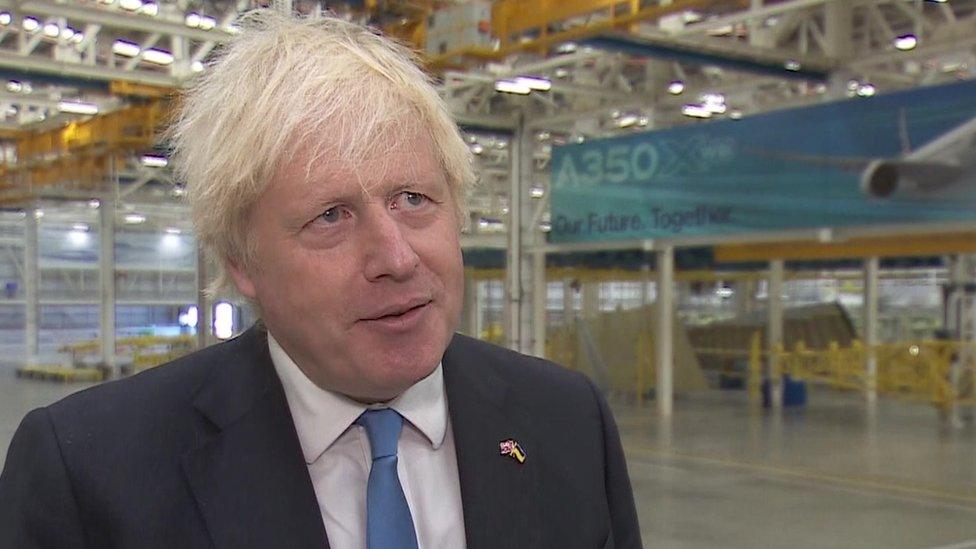Labour leader Keir Starmer defends response to cost-of-living crisis
- Published
- comments
Keir Starmer: Boris Johnson is a lame duck prime minister
Labour's leader has robustly defended his response to rising energy bills, arguing his party has been "leading" on the worsening cost-of-living crisis.
Sir Keir Starmer said Labour had already made proposals to lower costs, including taking VAT off energy bills.
He called Boris Johnson a "lame duck" prime minister who was "not prepared to do anything" on soaring living costs.
He said Labour would end energy prepayment meters premiums and more policies would follow next week.
Some backbench Labour MPs have criticised Sir Keir for being on holiday as the crisis over skyrocketing energy bills - driven by global economic turmoil - deepened this week.
When asked about discontent within his party over his response, Sir Keir said Labour had proposed policies such as a windfall tax on the excess profits of oil and gas companies and cutting VAT on energy bills months ago, long before they were on the government's radar.
"For the best part of 12 months, Labour has been absolutely leading on this issue," Sir Keir said. "And I'm very proud of the work we've done."
Labour and other opposition parties have been urging the government to take immediate action on rising living costs, an issue which has dominated the Tory leadership contest.
Earlier outgoing Prime Minister Mr Johnson admitted the current help for people struggling with energy bills was not enough, and he expected more money to follow.
The government has said it would leave big spending decisions to Mr Johnson's successor - either Rishi Sunak or Liz Truss - when they take office in September.
But Mr Johnson, who was forced to resign last month after a cabinet mutiny, said he was "making sure there is extra cash" for his successor to provide additional support.
Speaking in Edinburgh, Scotland after retuning to work on Friday, Sir Keir talked about Labour's plan to scrap what he called "outrageous and immoral" energy prepayment premiums.
Prepayment meters require customers to pay for their energy use in advance, often online, but also from credit bought in convenience stores.
Labour says it would eliminate the "premium" that means people with prepayment meters, who are often on low incomes, are charged more than those on direct debits.
Figures from energy regulator Ofgem, external show customers using prepayment meters will pay £46 more on average annually than those paying standard tariffs via direct debits.
With energy bills forecast to soar this winter, the policy is designed to ease the financial burden on the estimated four million domestic customers who use the meters.
Labour says its announcement is part of a wider package on the energy crisis that Sir Keir and other senior shadow ministers are planning to unveil in the coming days.
"On Monday, I'm going to be setting out a comprehensive set of proposals a plan for how we handle the upcoming costs in the autumn," Sir Keir said.
Analysts predict average annual energy bills could rise to over £4,200 by January, while the Bank of England has forecast a recession in the UK later this year.
But some backbench Labour MPs had expressed frustration at the party's recent response to rising living costs and the state of the economy.
"The scale of this crisis is absolutely huge, and I'm personally not seeing enough being done by my party," Zarah Sultana, the MP for Coventry South, told LBC.
"Of course I want the Labour Party to go further."
On Twitter Diane Abbott, a former shadow home secretary, shared a mocked-up wanted poster, external which said "missing during the cost of living crisis" below an image of Sir Keir.
Meanwhile, in Sir Keir's absence, cost of living and energy proposals put forward by former Labour prime minister Gordon Brown have been drawing attention.

Last week Mr Brown called for an emergency budget before the UK hit a "financial timebomb" this autumn. Then, writing in the Guardian, external, he urged the Tory leadership candidates to make "several urgently needed decisions".
They included cancelling the energy price cap before its expected increase later in August, and bringing energy companies into public ownership "as a last resort" if they can not meet certain conditions.
Evoking the banking collapse of 2007-08, Mr Brown said the government could "operate their essential services from the public sector until the crisis is over".
The BBC understands the announcement of Mr Brown's suite of proposals was not co-ordinated with the office of the Labour leader.
When asked if Mr Brown's suggestion of nationalising energy companies was out of step with the party's policy, backbench Labour MP Chris Bryant said: "No, I don't think so."
He said he was not a "let's-nationalise-everything person", but added: "There will be considerable pressure if the energy companies don't act faster, in particular to help poorer customers."
He said commentary on a Labour leader's uptake of policy ideas can be "a really stultifying process in British politics".
"Gordon has come up with some good ideas," Mr Bryant said. "It may not be exactly the same hymn that we're singing, but we're certainly signing from the same hymn book."
Related topics
- Published12 August 2022

- Published12 August 2022
